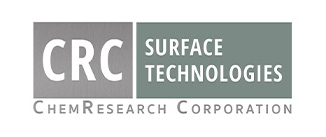
31 Mar Sulfamate Nickel vs. Sulfate Nickel Plating
Nickel is one of the most popular types of electroplating metals. Nickel plating enhances a variety of the substrate’s properties, including corrosion resistance, wear resistance, and overall appearance. The two most common nickel compounds used in electroplating and electroless plating are sulfamate nickel and sulfate nickel. Each type has distinct advantages that can make it ideal in specific situations. Below, we compare sulfamate nickel vs. sulfate nickel plating and their different applications.
Sulfamate Nickel vs. Sulfate Nickel Plating
What Is Sulfamate Nickel Electroplating?
Nickel sulfamate produces a dense, uniform layer of 99.9% pure nickel on the substrate. This outer layer of nearly pure nickel creates lower internal stress compared to other types of nickel plating.
The advantages of sulfamate nickel plating include:
- Enhanced corrosion resistance and hardness to help protect the substrate against the elements and wear
- Improved thermal conductivity, so the substrate can withstand high temperatures of up to 1400 degrees Celsius
- High tensile strength and superior ductility, which allows the substrate to be stretched without stress cracking or deformation
- Better machinability so the substrate can easily be cut, drilled, and shaped without wearing out the finish
- Excellent solderability, which makes it a good diffusion barrier for silver or gold plating used in circuit boards and other applications
Sulfamate Nickel Applications
Sulfamate nickel plating produces a dull finish, so it is mostly used for engineering and mechanical applications instead of decorative finishes. It is ideal in applications where adhesion, low-stress deposits, and uniform thickness are critical. It’s also ideal for returning a substrate to its original specifications—for example, it can restore industrial machinery rollers that function in hostile environments. Sulfamate nickel electroplating is most commonly used in the aerospace, electronics, food processing telecommunications, and precision engineering industries.
What Is Sulfate Nickel Electroplating?
Like sulfamate nickel, sulfate nickel has high hardness and excellent corrosion resistance. However, nickel sulfate plating produces a thinner, less pure layer of nickel. Because it is a lower grade of nickel, it is generally less expensive than sulfamate nickel. The main advantage of sulfate nickel is that it produces a bright finish that makes it an ideal choice for aesthetic applications.
Sulfate Nickel Applications
Sulfate nickel is often used in the automotive, oil and gas, and marine industries, especially in applications where hardness and wear resistance are essential. However, nickel sulfate lacks the durability and machinability that makes sulfamate nickel so popular in the food processing, electronics, and aerospace industries.
Which One Should You Choose?
Both sulfate and sulfamate nickel produce a layer of nickel with high hardness that will sufficiently protect the substrate from corrosion and wear. They each also serve as an excellent base layer for secondary plating, such as gold or silver plating applications.
But with so many similarities, how can you know which type is right for your manufacturing process? The choice between sulfamate nickel and sulfate nickel depends on the specific aesthetic and machining requirements of the application.
For instance, sulfate nickel electroplating produces a bright finish and is best for decorative applications that require a low level of thickness, but it isn’t as machinable or durable as sulfamate nickel. In contrast, sulfamate nickel electroplating is the top choice for engineering applications that require superior strength and low overall stress.
Sulfamate Nickel Plating in Phoenix, Arizona
In order to reap the many advantages of sulfamate nickel plating, it’s important to choose an experienced metal finishing company. CRC Surface Technologies offers expert sulfamate nickel electroplating, electroless nickel plating, and a wide range of other surface finishes for manufacturers across the country.
Our applicable specifications for sulfamate nickel include QQ-N-290 and AMS-QQ-N-290. We’ll ensure your metal parts are properly enhanced and restored. Email us at rfq@chemresearchco.com to request a quote, or call us at 602-253-4175 today to learn more.
Images used under creative commons license – commercial use (3/31/2023). Photo by John Torcasio on Unsplash

